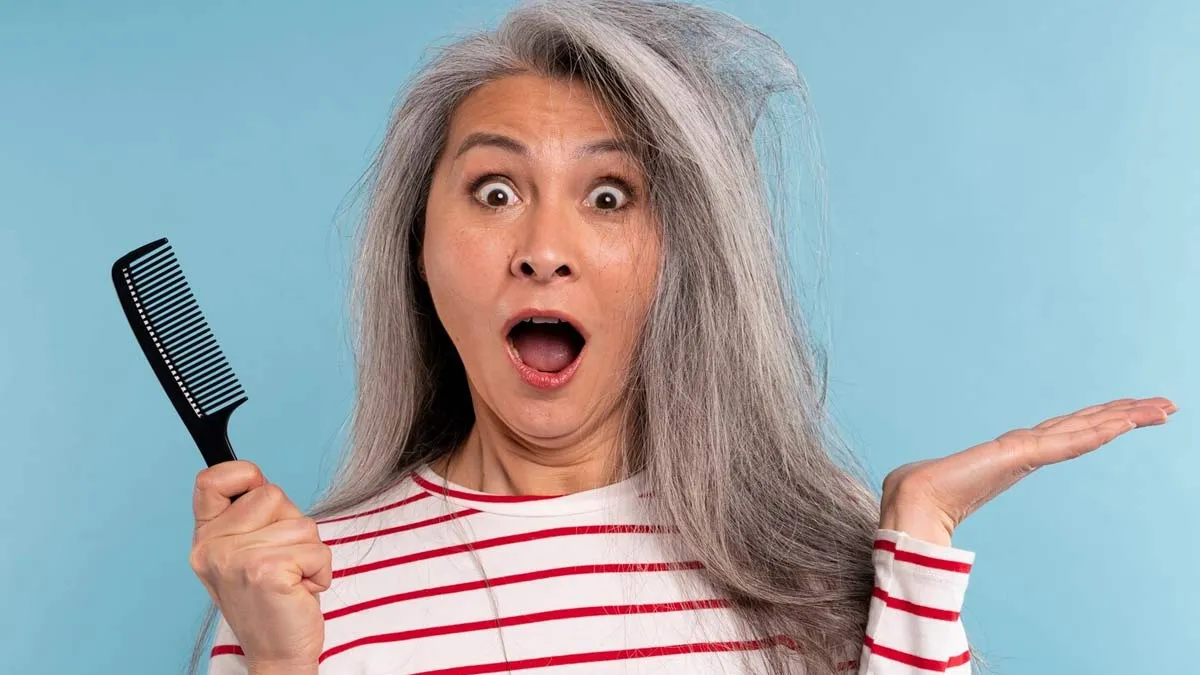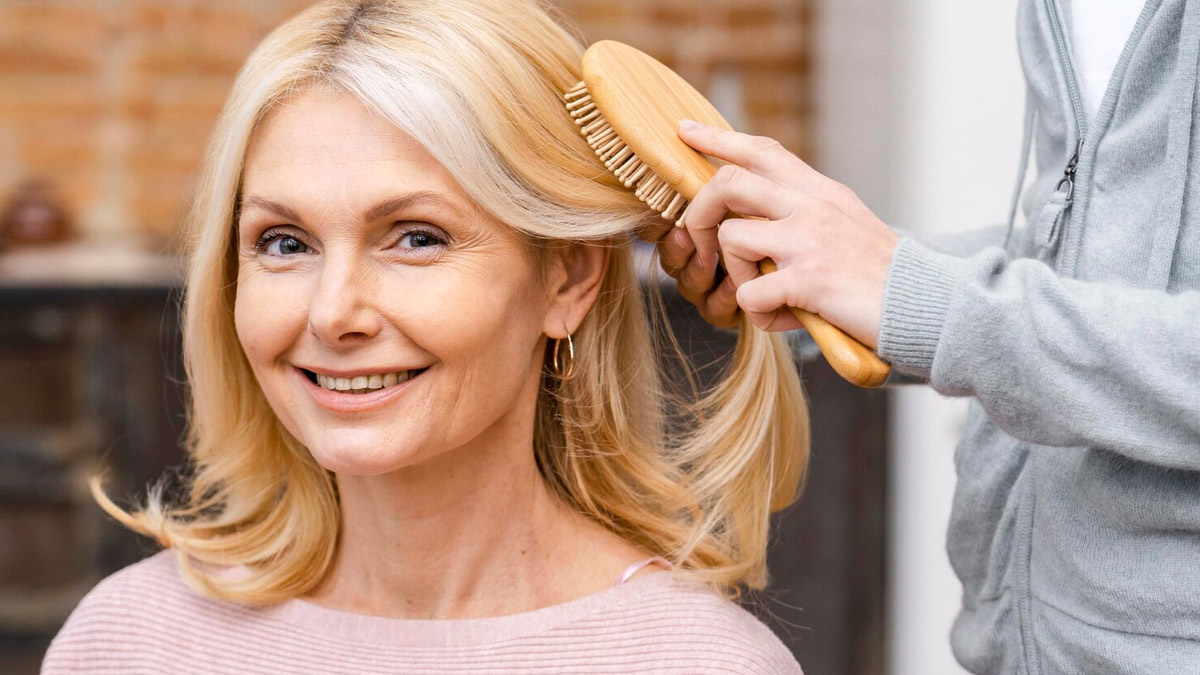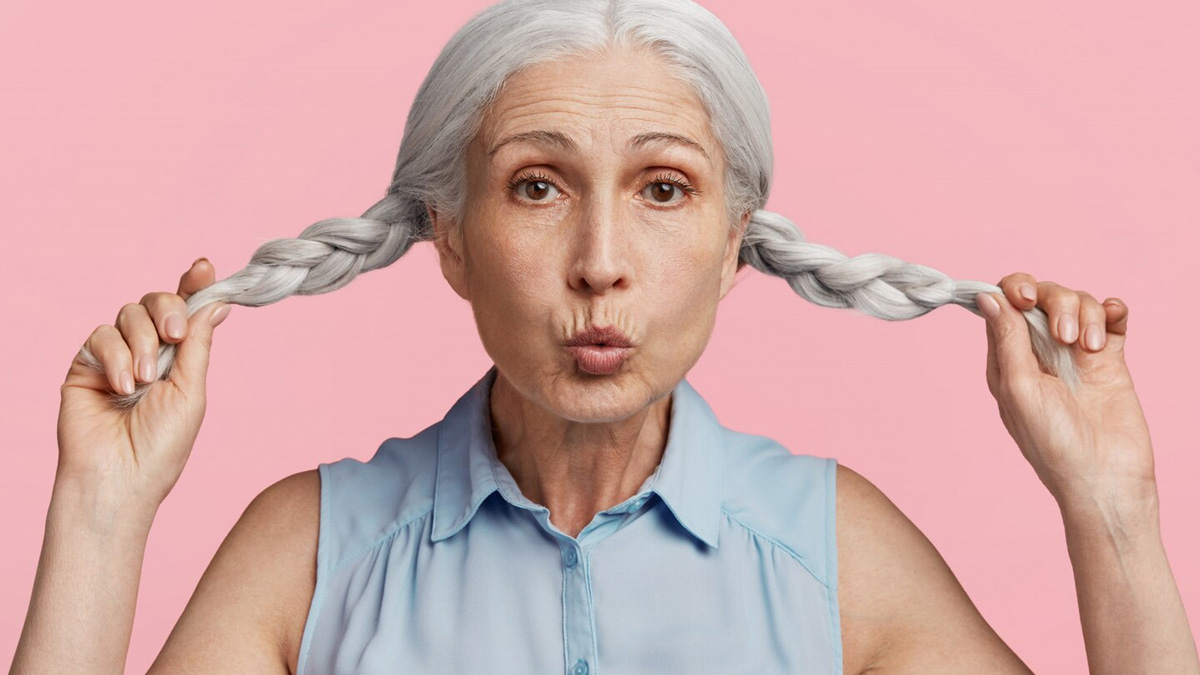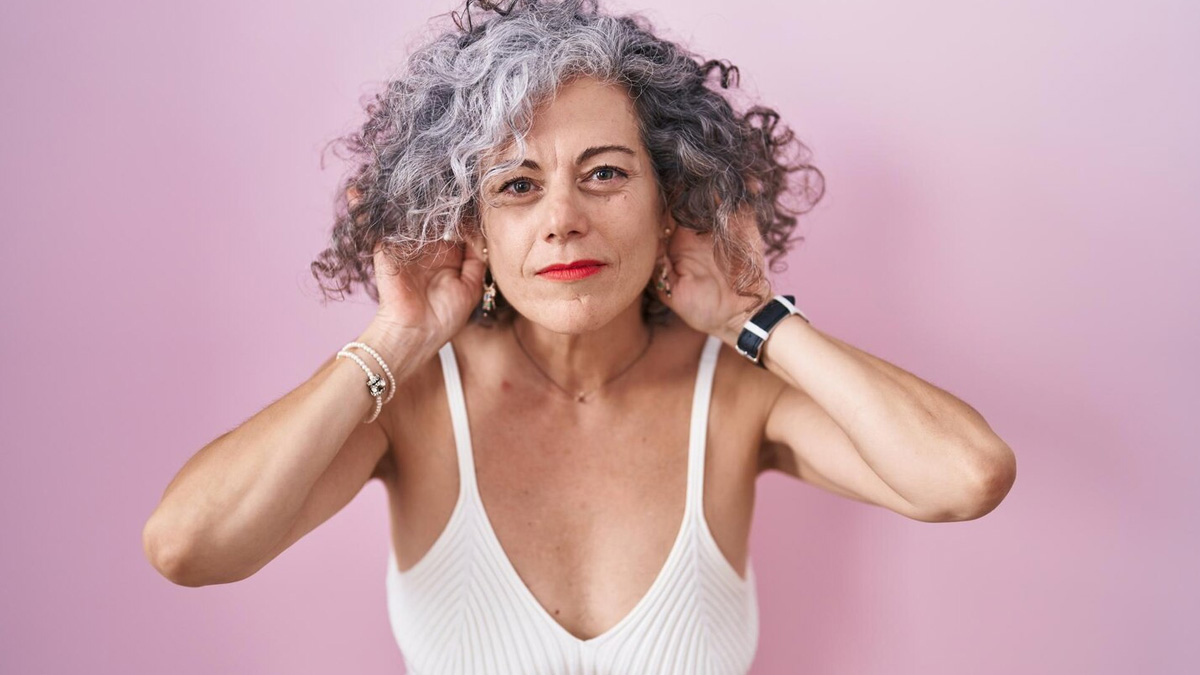
As you turn 40, a lot of changes are likely to occur in your body. You start nearing the perimenopausal stage, which is a transitional period before menopause when a woman's body begins to experience hormonal changes that affect her menstrual cycle. From irregular periods and hot flashes to sleep disturbances, a wide range of symptoms start to develop in the body. In addition, women also notice dermatological changes, particularly in the way their hair feels and looks.
Table of Content:-
A dermatologist helps us understand how our hair health tends to take a turn once we turn 40 or older.
Also Read: Why Does Your Hair Change With Age? Expert Helps You Find Out
How Your Hair Changes After 40

According to Dr Smriti Naswa Singh, Consultant - Dermatology & Cosmetology, Fortis Hospital Mulund, hormones, specifically oestrogen levels, start to deplete around the age of 40, which is considered to be a perimenopausal or climacteric age group.
“These hormonal shifts can change the texture and thickness of hair,” she says, sharing an example: some women might notice their straight hair becoming wavy, and many may experience thinning in the middle parting area. ” This thinning is particularly common in individuals with a genetic history of baldness on either their mother's or father's side, or from any male in the family, and can even skip three generations.
One recent study published in Maturitas suggested that hormonal changes during menopause lead to altered hair growth and characteristics. In fact, female-pattern hair loss and telogen effluvium are common in postmenopausal women.
“The reason is that the oil glands, which are active on both the face and hair from around 8 to 50 years of age, become inactive post-menopause due to hormonal influence,” explains Dr Singh.
“This often results in a dry scalp, which can lead to itchiness and sensitivity. Though dandruff doesn’t happen post menopause.”
But while hair thinning can occur, it is not mandatory and may or may not happen.
Role Of Diet And Nutrition

During your 40s and beyond, diet and nutrition play an important role in maintaining your hair health. They prevent hair thinning, especially as oestrogen levels decline.
Hence, it is recommended to adjust eating habits. Dr Singh advises:
- Ultra-processed foods and added sugars should be reduced or eliminated from the diet, as they can contribute to advanced glycation, which accelerates ageing.
- The focus should shift to a rainbow diet, incorporating two to three fruits and four to five vegetables daily.
- Adhering to a circadian rhythm of eating is also beneficial, with early dinners before 7:00 PM, lunch at 1:00 PM, and breakfast after 9:00 AM.
- Adding healthy nuts and seeds is vital because, as oil glands deplete, the fatty acids from these sources are very good for hair health.
- Soy products are important, as they are phytoestrogens and support the post-menopausal age group.
Also Read: What Happens To Your Hair as You Age: 6 Changes And Solutions
How To Determine What Hair Products Or Treatments Work For You?

There is no one-size-fits-all remedy to maintain hair health after 40 or in any other phase of one's life.
According to Dr Singh, dermatologists usually advise testing any new product by applying a small amount behind the ear or on the inner side of the arm. She recommends observing for two days for an early reaction or seven days for a late reaction. If no adverse reaction occurs, the product can be used.
However, permanent solutions like perming, straightening, keratin, or cysteine treatments, which offer lasting effects of three to six months, are not recommended. "These procedures damage the disulphide bonds and weaken all seven to eight layers of the hair shaft significantly," Dr Singh warns, adding that any permanent procedures offered in salons and parlours should be refrained from.
Conclusion
It shouldn’t be a surprise when you start noticing changes in your hair thickness and texture as you hit your 40s. This is a natural result of hormonal changes that occur before, during or after the menopausal transitions. While certain changes are unavoidable, you can always resort to healthy lifestyle choices and dermatologically approved treatments. Consult a doctor for the best advice.
How we keep this article up to date:
We work with experts and keep a close eye on the latest in health and wellness. Whenever there is a new research or helpful information, we update our articles with accurate and useful advice.
Current Version
Sep 13, 2025 16:50 IST
Published By : Tenzin Chodon